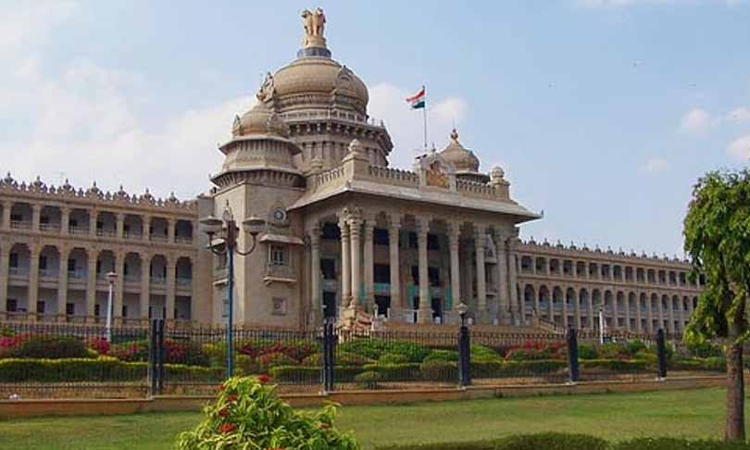Independent MLA & Anti-Defection Law: A Counter View
PRABHAKAR TIMBLE
29 July 2019 2:57 PM IST

Independent MLAs can make, unmake and destabilise governments in small States wherein the strength of the State Assembly is less than 60 as well as in other States where the ruling party has a slender majority. The Courts needs to place substantial importance to this issue whilst interpreting the provisions of the anti-defection law in respect of Independent MLA. If there are two possible interpretations open to the Court-----one that expands the scope of the Xth Schedule and the other that restricts the Court should choose the expansive reading so that the purpose of the law is not effaced.
The anti-defection law provides that "an elected member of a House who has been elected as such otherwise than as a candidate set up by any political party shall be disqualified for being a member of the House, if he joins any political party after such election. Such members are considered as independent MLAs for not belonging to any political party.
|
|
|
However, an independent MLA, who is a part of the Council of Ministers for whatever reasons, the said MLA has no choice to exercise the vote on budgetary demands except to extend support. Being the part and parcel of the cabinet, the option of exercising any cut motion on financial bills is not available to the independent MLA. When the Chief Minister seeks a vote of confidence or faces a vote of no-confidence, the independent MLA who is a part of the Council of Ministers cannot be on a different page in the House. Hence, there should be no iota of doubt that the independent MLA loses the independent status once the said member of the House takes up the berth in the cabinet.
|
The critical point for examination in respect of an independent MLA is the provision of "joining any political party after such election". Does joining mean voluntarily giving up the status by filling the membership form of a political party? Does the MLA lose the independent status if and only if the MLA fills in writing the membership form of a political party? Is not parading before the Governor or giving a letter of support to a political party to be construed as giving up the independent status? Further, does the independent MLA retain the independent status on joining as Minister in the Council of Ministers of the party in power?
It is admitted that the independent MLA has definitely the privilege to support and oppose the political party in power or any political force in the opposition. The independent MLA has the freedom to remain equidistant from all political parties as well as to stay close to any political party. The independent MLA has also the liberty to alter the position as the MLA fancies. The independent MLA cannot be subjected to any whip or censure as in the case of the members belonging to a political party. In short, being chosen by the electorate as an independent, the MLA stands unbound except for the provision in the anti-defection law prohibiting joining of any political party after the election and during the tenure as member of the House.
It needs to be submitted that the anti-defection law is not in order for having ignored the status of an independent MLA after being chosen as Minister in the Council of Ministers. As per the law and conventions of parliamentary democracy, every Minister in the cabinet is jointly and severally accountable to the House. The principle of "collective responsibility" is the primary essence of the cabinet form of government. As a result, it is totally erroneous to assume that any independent MLA can in any way retain the independent status as sought to be protected and guarded by the Tenth Schedule to the Constitution. No doubt, the independent MLA has not explicitly joined any political party. It can be assumed for the purpose of argument that the independent MLA joining any political party cannot be also implied.
However, an independent MLA, who is a part of the Council of Ministers for whatever reasons, the said MLA has no choice to exercise the vote on budgetary demands except to extend support. Being the part and parcel of the cabinet, the option of exercising any cut motion on financial bills is not available to the independent MLA. When the Chief Minister seeks a vote of confidence or faces a vote of no-confidence, the independent MLA who is a part of the Council of Ministers cannot be on a different page in the House. Hence, there should be no iota of doubt that the independent MLA loses the independent status once the said member of the House takes up the berth in the cabinet.
A consideration of the above position is required to deal with the issue of independent MLA i.e. an elected member of a House who has been elected as such otherwise than as a candidate set up by any political party. Merely stating that the member would stand disqualified on joining any political party after such election would be grossly inadequate as it provides unbridled privilege to such a MLA. This would be subverting the very purpose of the anti-defection law which is to curb MLA trading using the ministerial berths as the value-in-exchange.
Author is an Ex-State Election Commissioner, Goa State.
[The opinions expressed in this article are the personal opinions of the author. The facts and opinions appearing in the article do not reflect the views of LiveLaw and LiveLaw does not assume any responsibility or liability for the same]


